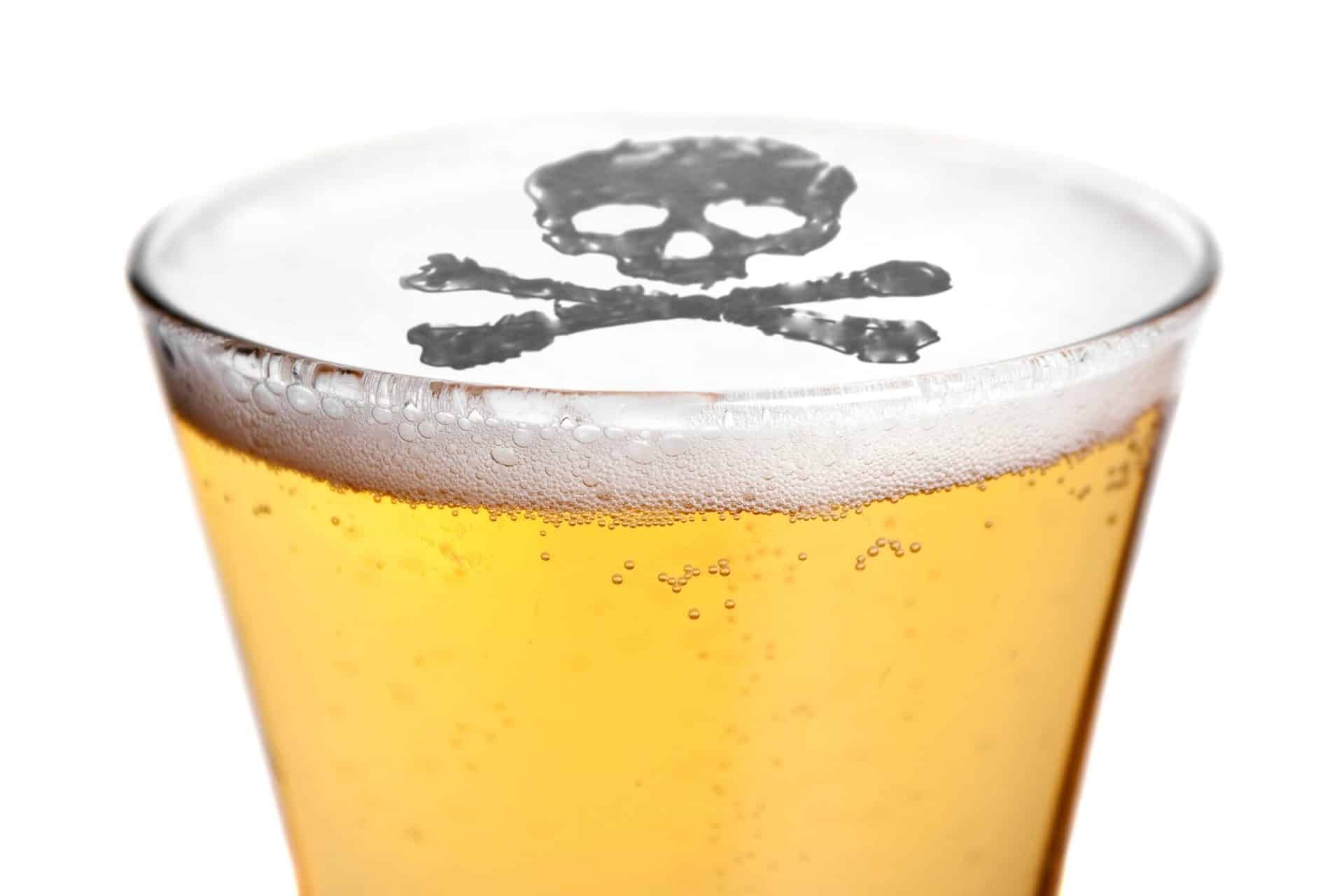Free Consultation
Free Consultation

You probably won’t be surprised to hear that alcohol consumption increases during the holiday season. Did you know that it doubles, though?
Unfortunately, the 100% increase in alcohol consumption doesn’t necessarily result in an 100% increase in fun and merriment. Between holiday parties with friends, holiday parties with family, holiday parties with work… as you start to feel the holiday season coming on, you can probably also start to feel the impending hangovers.
That’s not the worst part, either. Alcohol already causes more deaths than opioid overdoses each year – when there’s a spike in alcohol consumption, those numbers rise at devastating rates. Which begs the question: can you sue for wrongful death if someone dies from alcohol poisoning?
Let’s take a step back for a second.
That wasn’t a typo above: alcohol causes more deaths than opioid overdoses, and these numbers have been rising for the past 10 years. From 2007 to 2017, the rate of alcohol-related deaths rose 35%, and women are more frequently the victims.
How does alcohol cause death? All kinds of ways.
Alcohol overdoses accounted for 88,000 deaths each year from 2006-2010, but the overall increase in alcohol-related deaths covers more than overdoses. Even one night of excessive binge drinking can result in high blood pressure, stroke, or irregular heartbeat.
Regular binge drinking can cause a variety of life-threatening conditions, including:
Alcohol can also increase your risk of getting into a car accident. Drunk drivers kill 29 people in the United States every day, and the holiday season is the most dangerous time to get behind the wheel.
If a drunk driver injures or kills someone, the victim’s family can bring a negligence lawsuit against the driver. If a doctor’s negligence causes liver failure or heart failure in a patient, the victim’s family may bring up a medical malpractice lawsuit against the doctor.
What if a family loses a loved one due to drinking too much, though? Can they bring a wrongful death lawsuit against anyone who aided or abetted in the consumption of that alcohol?
New York bars give bartenders and employees rules about how to identify signs of intoxication and when to cut patrons off from drinking. Part of this training is to prevent lawsuits.
Ours is one of 30 states that has Dram Shop laws. If alcohol causes death, the victim’s loved ones may be able to file a wrongful death lawsuit on the grounds of these Dram Shop laws.
What are Dram Shop laws?
The most common way Dram Shop laws are employed in New York is when someone gets drunk at a bar and causes an accident while driving. If someone is injured in the crash, they can sue the bar for allowing the person to drink too much and drive away.
However, they can also apply when someone drinks too much and causes injury to themselves. Let’s say a young man dies from alcohol poisoning after a night out. His parents discover that he was drinking heavily at a bar, but the bartenders continued to serve him even though he was very visibly intoxicated.
The parents could file a lawsuit against the bartenders because they continued to sell alcohol that directly contributed to their son’s injuries.
In order to win a lawsuit against a bar or another establishment that served the victim alcohol, you will need to be able to prove three elements:
As mentioned above, Dram Shop laws involve a person that sells alcohol and a person that becomes injured due to alcohol. However, alcohol can change hands many times in-between these two people. Do Dram Shop laws always cover alcohol-related injuries?
Definitely not.
Do you remember that episode of The Office when Michael buys 15 bottles of vodka for the office? Even if that holiday party were to cause an injury or death, the person that sold Michael the 15 bottles cannot be sued under Dram Shop laws. If someone buys alcohol for a party, even an employee party, the person who sold the alcohol cannot be sued for resulting injuries.
The same rules apply for corporate promotional parties and most private events. Likewise, employees who receive alcoholic drinks during their shift at a bar or related establishment cannot file a lawsuit against their employer under Dram Shop laws.
In contrast, Dram Shop laws always apply to situations that involve a minor. No seller should knowingly sell alcohol to an underage patron.
As you can see, there are a lot of “what-ifs” that come with Dram Shop laws. Lawsuits as recent as 2009 have clarified when Dram Shop laws can be used against a seller.
Do not be afraid to reach out to a personal injury lawyer to talk about your particular situation. If a loved one dies due to being overserved, you deserve compensation – and they need to be held accountable for their actions.